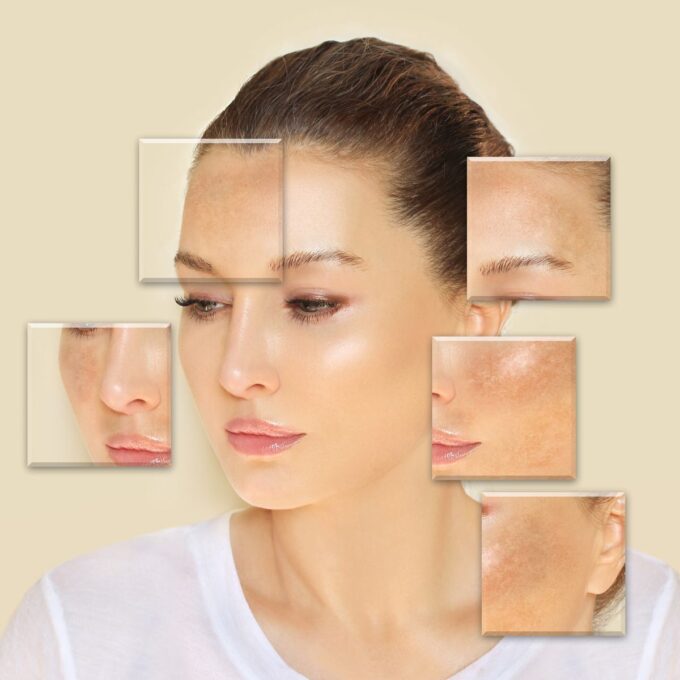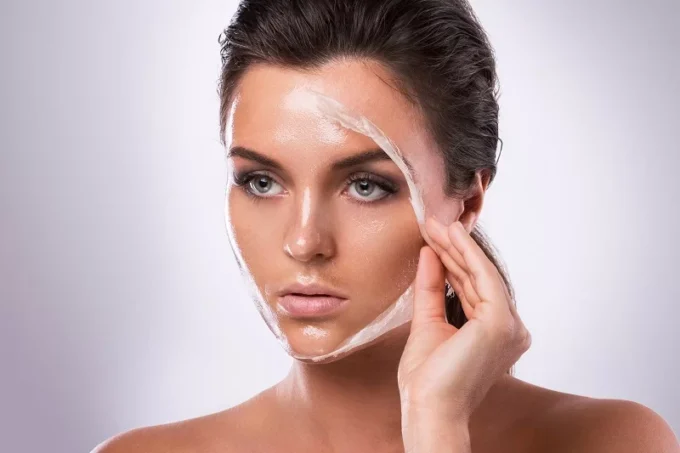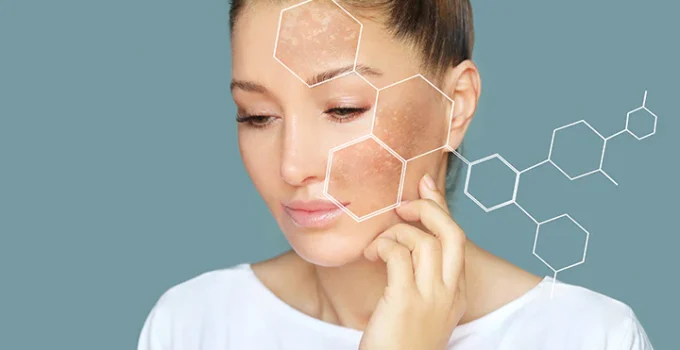Dark spots on the skin, while not harmful, can be a cosmetic concern for many individuals. These spots often result from sun exposure, hormonal changes, and skin inflammation. The good news is that there are several ways to prevent and manage dark spots.
In this blog post, we’ll explore these solutions and methods, including the use of skin discoloration creams and serums, without diving into specific brands.
Understanding Dark Spots
Before delving into the various prevention and management techniques, it’s important to know what dark spots are and why they appear on the skin. Dark spots form when there’s an excess production of melanin, the pigment responsible for the color of our skin, hair, and eyes. There are three common types of dark spots: age spots, melasma, and post-inflammatory hyperpigmentation (PIH).
Age spots, also known as liver spots, are the result of sun damage over time. Melasma, often seen during pregnancy or in those taking oral contraceptives, is attributed to hormonal changes. PIH occurs when inflammation or injury, such as acne or cuts, triggers melanin production.
Prevention of Dark Spots

Source: goodhousekeeping.com
In order to prevent the formation of dark spots, it’s important to protect the skin from sun exposure. As such, a variety of ways to protect the skin should be implemented including:
Sun Protection
One of the most crucial steps in preventing dark spots is protecting your skin from the sun. The harmful rays of the sun can accelerate melanin production, resulting in dark spots. To shield your skin, use sunscreen with a high SPF, ideally 30 or higher.
Wearing protective clothing, wide-brimmed hats, and sunglasses can also help reduce sun exposure. Lastly, limit time spent outdoors during peak sunlight hours, typically between 10 a.m. and 4 p.m.
Skincare Routine
An effective skincare routine can play a significant role in dark spot prevention. Incorporating gentle exfoliation into your regimen will help remove dead skin cells and improve skin tone. Antioxidant-rich products can provide additional protection against environmental damage. Be cautious when using strong skin products, as these may cause inflammation, leading to more dark spots.
Here are some additional tips to help prevent dark spots:
- Use a gentle cleanser – A gentle cleanser will help remove dirt and impurities from your skin without causing irritation. Look for a formula that’s free from harsh ingredients and won’t strip your skin of its natural oils.
- Incorporate Vitamin C into your routine – Vitamin C is a powerful antioxidant that can help protect your skin from environmental damage and improve skin tone. Look for a Vitamin C serum or moisturizer that’s suitable for your skin type.
- Eat a healthy diet – A diet rich in fruits, vegetables, and whole grains can help keep your skin healthy and reduce the risk of dark spots. Antioxidant-rich foods, such as berries, green tea, and leafy greens, can help protect your skin from environmental damage.
- Get plenty of sleep – Sleep plays a crucial role in skin health. When you’re well-rested, your skin is better able to repair itself and stay healthy. Aim for 7-9 hours of sleep per night to help prevent dark spots.
Incorporating these tips into your skincare routine can help prevent dark spots and keep your skin looking healthy and radiant. Remember to be patient, as it may take some time to see results. Consult a dermatologist if you have any concerns or if you’re not sure what skincare products are best for your skin type.
Treating Dark Spots

Source: vibrantskinbar.com
Treating existing dark spots can be tricky, but there are a few options that may help. These options include the following:
Over-the-counter Solutions
For those already experiencing dark spots, there are several over-the-counter products available, like Topicals. Skin discoloration cream and skin discoloration serum are two options that help fade dark spots over time.
When choosing these products, look for ingredients such as hydroquinone, glycolic acid, kojic acid, and niacinamide. These ingredients work to inhibit melanin production, exfoliate the skin, and reduce inflammation.
Professional Treatments
If over-the-counter solutions don’t provide satisfactory results, professional treatments may be the next step. Options include chemical peels, laser therapy, and microdermabrasion. Each treatment comes with its benefits and drawbacks.
For example, chemical peels can be effective but may require downtime, while laser therapy might be expensive but produce faster results. To determine the most suitable option, consult a dermatologist.
Home Remedies for Dark Spots

Source: bellatory.com
Home remedies can also be used to lighten dark spots. Some common remedies include:
Natural Lightening Agents
Home remedies, such as natural lightening agents, can also help to reduce dark spots. Some commonly used ingredients include lemon juice, apple cider vinegar, and turmeric. To create a DIY skin-lightening treatment, mix one of these ingredients with a carrier oil or other soothing agents, and apply it to the affected area.
However, be cautious when using these remedies, as some ingredients can increase sun sensitivity or cause irritation.
Consistency and Patience
As with any skincare regimen, consistency is key. Regularly applying treatments and sun protection will yield better results than sporadic use. Furthermore, be patient. Dark spots can take weeks or even months to fade, so it’s essential to give your chosen method enough time to work. If you don’t see results after several months, it might be time to try a different approach or consult a dermatologist.
Preventing and managing dark spots on the skin requires a multifaceted approach. Sun protection, a proper skincare routine, and the use of over-the-counter solutions like skin discoloration cream and skin discoloration serum can all play a role in reducing the appearance of these spots.
Professional treatments and home remedies can also be helpful, but it’s essential to consult a dermatologist for guidance on the best course of action.
Consistency and patience are crucial when treating dark spots, as results may take time to become apparent. By implementing these strategies and staying committed to your skincare regimen, you’ll be on your way to healthier, more even-toned skin.
Share this post with friends and family to spread awareness about the importance of a balanced approach to dark spot prevention and management.







